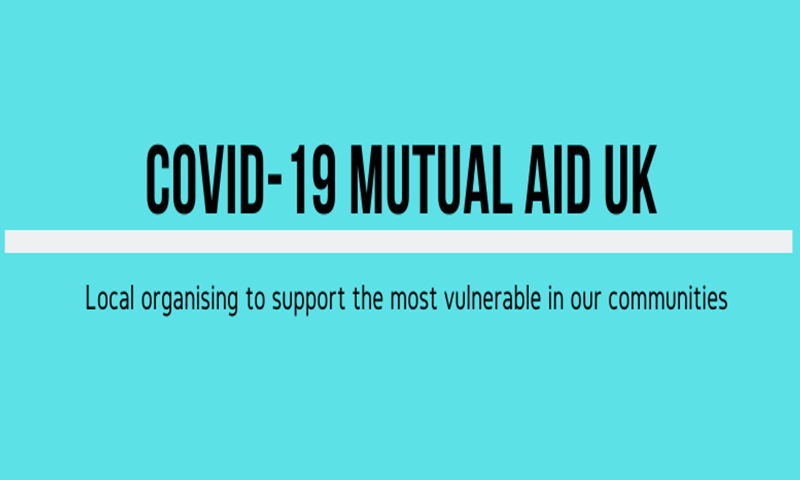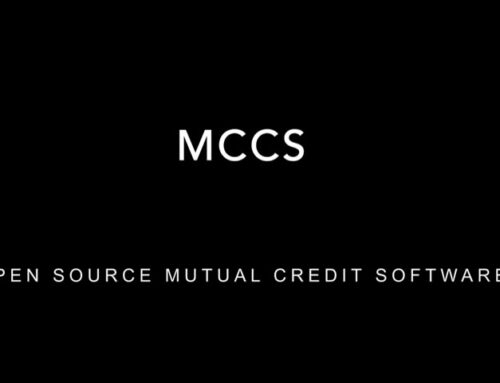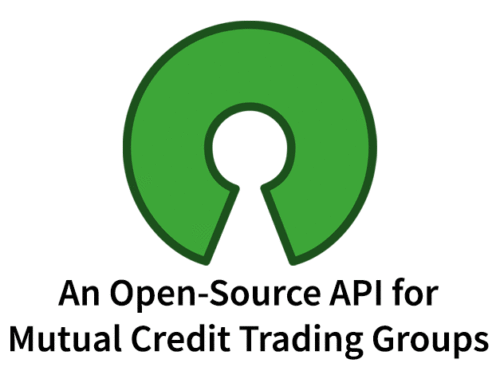With the Covid-19 pandemic threatening a frightening death toll among the most vulnerable sections of the world population, it might seem a little crass to be writing about the economy. However, it is vital for our continued health that we find ways to continue to access what we need in a society where much of ‘business-as-usual’ is going to be off the table for at least the next few months, and possibly a year or more, and when a significant global recession is almost a certainty.
The vital practice of social distancing is our best chance to prevent the virus from laying waste to our societies – which it will if it overwhelms the capacity of the public health services – so we do all need to implement whatever version seems ethical and appropriate to us in these strange and difficult times.
As we go through the conversations with family and colleagues about the new ways we will have to arrange our lives to minimise the impact of the virus, we will of course be putting avoidance of sickness and risk to life at the top of the agenda. But as we do this, the realisation keeps popping up, in many ways, that these required changes will spell significant difficulty for many businesses, and thus for many people’s capacity to earn a living and to access needed goods and services.
As cafes, pubs, restaurants, galleries, theaters, museums close their doors – many for good – the knock-on effects will make many other businesses non-viable in short order.
A global recession is coming – and the effects will be experienced locally – not through statistics, but through job losses and reduced availability of goods and services. The most immediate way in which these effects will be felt will be through a combination of scarce money and higher prices.
But there’s something strange about this picture. Because the damage done by the virus is rather specific – fewer available workers and increased distribution costs. The machinery, land, roads, computers and all the other resources that make production possible are still all there, and people still have all the same wants. Despite the pandemic, there will still be plenty of willing workers, all the resources, and all the need.
What will prolong the crisis beyond the health emergency will be an entirely artificial condition – a scarcity of the made-up tokens generally known as money. A widespread experience of lack of money to buy stuff with is the main driver of any recession – and will be what turns this healthcare crisis into an economic disaster…
If we let it.
But we really don’t need to.
One approach being actively discussed is the idea of ‘helicopter money’ – literally printing money and handing some out to every citizen. This is a version of the bank rescue project after 2008 – except that the help would be spread throughout the population. The problem here is that it will probably not be enough. In the UK, £1,000 per person as a one-off would cost £70Bn. And just doing that once is unlikely to make much of a difference. Doing it monthly (some kind of Universal Basic Income) would probably make a difference – but the chances of any government making that scale of commitment seem vanishingly small for a radical policy proposal like UBI.
But there’s another way – and one we can do for ourselves, without waiting for the government to decide. It’s really quite simple, and it dovetails neatly with the amazing flowering of so many Mutual Aid groups that have mobilised communities for self-organised support in the midst of the pandemic. It’s called Mutual Credit.
Imagine a family sitting down to play monopoly, only to discover that the monopoly money has been lost. Do they need to give up? Couldn’t they just cut up an old newspaper, get out a fat pen, and make their own? As long as everyone playing agrees that these can work just as the original bits of paper did, the game can go on.
Of course, it’s illegal for us to make our own pounds – but we are allowed to keep accounts – and that’s all that Mutual Credit is. Within an exchange network, everyone agrees to use a particular accounting unit (usually agreeing that it is equivalent to £1), and keep accounts of all the trades in the group. It isn’t ‘real’ money – just as cut up newspaper isn’t ‘real’ monopoly money – but it does exactly the same job, and it works. The Sardex network in Sardinia was set up after the 2008 crash and now does around €50Bn of trade per year.
In the second phase of the Covid-19 crisis, local economies everywhere are going to be devastated – half the high street closed, many people laid off and living on benefits; surviving businesses short of workers and worried about people having the money to buy from them. But we can significantly reduce the damage this situation will cause by getting together and agreeing to trade together using Mutual Credit when we are short of pounds.
Mutual Credit enables customers to buy when they need, allows businesses to know that customers will buy, and makes it possible to pay workers.
There are many ways to run Mutual Credit networks – and different ways will suit different places, different groups. The good news is that there are working tools for these different approaches that can be adopted by communities without difficulty.
Here at Open Credit Network, we are working to connect businesses across the UK – and we want to connect local networks together, too – because in our complex economy we need to exchange across wide and deep networks.
If you’re a business – of any kind – join today, for free, and become a joint owner of the network – this is mutual in action as well as in name; no-one is profiteering here.
If you’re part of a trading group, or new community group like a Covid-19 Mutual aid Group – however informal – and you’d like to set up a local Mutual Credit network in your town, then get in touch – we’re beavering away on the tools you need to set up your own network without needing any specialist tech or financial skill, and connect it to others through the Open Credit Network, for increased local economic resilience and capacity.
I’ll sign off with a heartfelt wish that you and yours do not suffer unduly in the coming weeks. Myself, I think I’ve just come through it, experiencing only mild flu-like symptoms, with another ten days or so of self-isolation to go, and it hasn’t been too bad.





